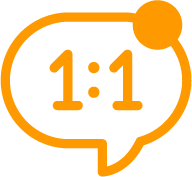10 Unexpected Buy Counterfeit Money Legally Tips
페이지 정보
작성자 Roma Krueger 작성일 25-04-19 19:49 조회 165 댓글 0본문
Title: The Illusion of Legality: Checking Out the Misconceptions and Truths of Buying Counterfeit Money
In the world of financing and legal matters, the idea of purchasing counterfeit money legally is one that frequently stimulates curiosity and, sometimes, raises ethical and legal falschgeld kaufen concerns. The appeal of getting money without the financial cost might appear tempting, but the truth is starkly various. This article looks into the intricacies of counterfeit money, checking out the legal and ethical implications, and unmasking typical misconceptions associated with the idea of legally buying counterfeit currency.
Understanding Counterfeit Money
Counterfeit money, likewise called fake or created currency, is a replication of real money designed to trick individuals and institutions. This prohibited activity has actually been a longstanding concern, with advanced approaches developing alongside technology. The main purpose of counterfeiting is to pass off the fake money as real, hence defrauding others and disrupting economic stability.
The Legal Landscape
The laws surrounding counterfeit money are rigid and universal. In most countries, the production, circulation, and belongings of counterfeit currency are criminal offenses, punishable by serious charges, including significant fines and imprisonment. The legal structure remains in place to protect the stability of the financial system, guarantee reasonable deals, and preserve public trust.
Common Myths and Misunderstandings
Myth: It's legal to buy counterfeit money for collectors or educational functions.
Truth: Even if the intention is not to defraud, purchasing, offering, or having counterfeit money is prohibited. While some collectors may be thinking about historic or artistic fakes, they must ensure that the products are plainly marked as recreations and not intended for usage in deals.
Misconception: Online marketplaces use legal ways to acquire counterfeit money.
Fact: Any website or online market that claims to sell counterfeit money, even for academic purposes, is most likely engaging in prohibited activities. Buyers must be cautious of such claims and prevent deals that may lead to legal effects.
Misconception: If the counterfeit money is of a foreign currency, it's not prohibited.
Fact: The laws against counterfeiting apply to all currencies, not simply the local one. Having or utilizing counterfeit foreign currency can still result in legal charges, particularly if it is meant for use in deals.
The Consequences of Counterfeiting
The consequences of participating in the production, distribution, or use of counterfeit money are serious and far-reaching. Here are some of the possible results:
Crook Charges:
Forgery: This includes the production of counterfeit money.
Ownership: Owning counterfeit money, even if accidentally, can lead to charges.
Circulation: Selling or passing counterfeit money to others is a severe offense.
Economic Impact:
Inflation: Counterfeit money can cause a synthetic increase in the money supply, triggering inflation and economic instability.
Loss of Trust: Financial institutions and Falschgeld Shop Online the general public might lose trust in the currency, leading to a decline in its value and functionality.
Individual Consequences:
Financial Loss: Individuals who unwittingly accept counterfeit money might deal with financial losses and problem in repaying the real value.
Reputation Damage: Being related to counterfeiting can badly harm one's reputation and social standing.
Legal Alternatives for Collectors and Enthusiasts
For those interested in collecting or studying counterfeit money, there are legal options that must be checked out:
Historical Reproductions:
Museums and Educational Institutions: These frequently use genuine reproductions of historic counterfeit money for educational functions. These products are plainly marked as not being legal tender.
Specialized Collectors: Some collectors focus on historical fakes that are no longer in circulation and have no value in transactions.
Hobbyist Clubs and Forums:
Join Clubs: Engage in hobbyist clubs and online forums where the focus is on the historical and artistic elements of counterfeits instead of their use.
Educational Workshops: Participate in workshops and workshops that provide insights into the history and detection of counterfeit money.
How to Detect Counterfeit Money
Comprehending how to detect counterfeit money is important for avoiding legal falschgeld kaufen problems and monetary losses. Here are some essential signs:
Paper Quality:
Feel and Texture: Genuine currency paper has a special texture and feel that is hard to duplicate. Counterfeit expenses often feel smoother or thinner.
Watermarks:
Light Test: Hold the bill as much as a light to see if a watermark is visible. Genuine watermarks become part of the paper and are not printed on.
Security Threads:
Genuine Threads: Look for an embedded security thread that may glow under ultraviolet light. Counterfeiters often use printed lines that do not glow.
Microprinting:
Magnification: Use a magnifying glass to inspect for microprinting, which is often too little for counterfeiters to reproduce properly.
Color-Shifting Ink:
Angle Test: Tilt the expense to see if certain areas, like the numeral in the corner, modification color. Genuine expenses have this feature, while fakes often do not.
Frequently asked questions
1. Is it legal beste webseite für falschgeld gefälschte dokumente kaufen (Menwiki.men) to buy counterfeit money for educational purposes?
 No, it is prohibited to buy, offer, or possess counterfeit money, despite the purpose. Even if the intent is academic, the cash needs to be plainly marked as a recreation and not meant for usage in transactions.
No, it is prohibited to buy, offer, or possess counterfeit money, despite the purpose. Even if the intent is academic, the cash needs to be plainly marked as a recreation and not meant for usage in transactions.
2. What should I do if I get counterfeit money?
If you believe you have actually gotten counterfeit money, do not pass it on. Rather, contact your local police or banks right away. They can guide you on the correct actions to take to prevent legal issues.
3. Can I legally own a historical counterfeit bill?
You can legally own a historic counterfeit costs if it is clearly marked as a reproduction and is not planned for usage in deals. Nevertheless, it is vital to confirm its authenticity and ensure it is not a modern counterfeit.
4. What are the charges for using counterfeit money?
The penalties for utilizing counterfeit money can be extreme, consisting of fines and imprisonment. The specific penalties differ by jurisdiction, however they are designed to prevent counterfeiting and safeguard the economy.
5. How can I safeguard myself from counterfeit money?
Stay informed about the newest security functions of authentic currency. Utilize the detection methods mentioned above, such as checking paper quality, watermarks, security threads, microprinting, and color-shifting ink. If in doubt, validate the cash with a banks.
Conclusion
The concept of buying counterfeit money legally is a myth. While the allure of obtaining money without the monetary cost might appear tempting, the legal and ethical implications are extreme. For collectors and lovers, there are legal alternatives to explore, such as historical reproductions and academic resources. By comprehending the laws and taking proactive steps to discover counterfeit money, people can safeguard themselves and add to the stability of the monetary system. The key is to constantly act within the bounds of the law and to prioritize ethical practices over short-term gains.
In the world of financing and legal matters, the idea of purchasing counterfeit money legally is one that frequently stimulates curiosity and, sometimes, raises ethical and legal falschgeld kaufen concerns. The appeal of getting money without the financial cost might appear tempting, but the truth is starkly various. This article looks into the intricacies of counterfeit money, checking out the legal and ethical implications, and unmasking typical misconceptions associated with the idea of legally buying counterfeit currency.
Understanding Counterfeit Money
Counterfeit money, likewise called fake or created currency, is a replication of real money designed to trick individuals and institutions. This prohibited activity has actually been a longstanding concern, with advanced approaches developing alongside technology. The main purpose of counterfeiting is to pass off the fake money as real, hence defrauding others and disrupting economic stability.
The Legal Landscape
The laws surrounding counterfeit money are rigid and universal. In most countries, the production, circulation, and belongings of counterfeit currency are criminal offenses, punishable by serious charges, including significant fines and imprisonment. The legal structure remains in place to protect the stability of the financial system, guarantee reasonable deals, and preserve public trust.
Common Myths and Misunderstandings
Myth: It's legal to buy counterfeit money for collectors or educational functions.
Truth: Even if the intention is not to defraud, purchasing, offering, or having counterfeit money is prohibited. While some collectors may be thinking about historic or artistic fakes, they must ensure that the products are plainly marked as recreations and not intended for usage in deals.
Misconception: Online marketplaces use legal ways to acquire counterfeit money.
Fact: Any website or online market that claims to sell counterfeit money, even for academic purposes, is most likely engaging in prohibited activities. Buyers must be cautious of such claims and prevent deals that may lead to legal effects.
Misconception: If the counterfeit money is of a foreign currency, it's not prohibited.
Fact: The laws against counterfeiting apply to all currencies, not simply the local one. Having or utilizing counterfeit foreign currency can still result in legal charges, particularly if it is meant for use in deals.
The Consequences of Counterfeiting
The consequences of participating in the production, distribution, or use of counterfeit money are serious and far-reaching. Here are some of the possible results:
Crook Charges:
Forgery: This includes the production of counterfeit money.
Ownership: Owning counterfeit money, even if accidentally, can lead to charges.
Circulation: Selling or passing counterfeit money to others is a severe offense.
Economic Impact:
Inflation: Counterfeit money can cause a synthetic increase in the money supply, triggering inflation and economic instability.
Loss of Trust: Financial institutions and Falschgeld Shop Online the general public might lose trust in the currency, leading to a decline in its value and functionality.
Individual Consequences:
Financial Loss: Individuals who unwittingly accept counterfeit money might deal with financial losses and problem in repaying the real value.
Reputation Damage: Being related to counterfeiting can badly harm one's reputation and social standing.
Legal Alternatives for Collectors and Enthusiasts
For those interested in collecting or studying counterfeit money, there are legal options that must be checked out:
Historical Reproductions:
Museums and Educational Institutions: These frequently use genuine reproductions of historic counterfeit money for educational functions. These products are plainly marked as not being legal tender.
Specialized Collectors: Some collectors focus on historical fakes that are no longer in circulation and have no value in transactions.
Hobbyist Clubs and Forums:
Join Clubs: Engage in hobbyist clubs and online forums where the focus is on the historical and artistic elements of counterfeits instead of their use.
Educational Workshops: Participate in workshops and workshops that provide insights into the history and detection of counterfeit money.
How to Detect Counterfeit Money
Comprehending how to detect counterfeit money is important for avoiding legal falschgeld kaufen problems and monetary losses. Here are some essential signs:
Paper Quality:
Feel and Texture: Genuine currency paper has a special texture and feel that is hard to duplicate. Counterfeit expenses often feel smoother or thinner.
Watermarks:
Light Test: Hold the bill as much as a light to see if a watermark is visible. Genuine watermarks become part of the paper and are not printed on.
Security Threads:
Genuine Threads: Look for an embedded security thread that may glow under ultraviolet light. Counterfeiters often use printed lines that do not glow.
Microprinting:
Magnification: Use a magnifying glass to inspect for microprinting, which is often too little for counterfeiters to reproduce properly.
Color-Shifting Ink:
Angle Test: Tilt the expense to see if certain areas, like the numeral in the corner, modification color. Genuine expenses have this feature, while fakes often do not.
Frequently asked questions
1. Is it legal beste webseite für falschgeld gefälschte dokumente kaufen (Menwiki.men) to buy counterfeit money for educational purposes?
 No, it is prohibited to buy, offer, or possess counterfeit money, despite the purpose. Even if the intent is academic, the cash needs to be plainly marked as a recreation and not meant for usage in transactions.
No, it is prohibited to buy, offer, or possess counterfeit money, despite the purpose. Even if the intent is academic, the cash needs to be plainly marked as a recreation and not meant for usage in transactions.2. What should I do if I get counterfeit money?
If you believe you have actually gotten counterfeit money, do not pass it on. Rather, contact your local police or banks right away. They can guide you on the correct actions to take to prevent legal issues.
3. Can I legally own a historical counterfeit bill?
You can legally own a historic counterfeit costs if it is clearly marked as a reproduction and is not planned for usage in deals. Nevertheless, it is vital to confirm its authenticity and ensure it is not a modern counterfeit.
4. What are the charges for using counterfeit money?
The penalties for utilizing counterfeit money can be extreme, consisting of fines and imprisonment. The specific penalties differ by jurisdiction, however they are designed to prevent counterfeiting and safeguard the economy.
5. How can I safeguard myself from counterfeit money?
Stay informed about the newest security functions of authentic currency. Utilize the detection methods mentioned above, such as checking paper quality, watermarks, security threads, microprinting, and color-shifting ink. If in doubt, validate the cash with a banks.
Conclusion
The concept of buying counterfeit money legally is a myth. While the allure of obtaining money without the monetary cost might appear tempting, the legal and ethical implications are extreme. For collectors and lovers, there are legal alternatives to explore, such as historical reproductions and academic resources. By comprehending the laws and taking proactive steps to discover counterfeit money, people can safeguard themselves and add to the stability of the monetary system. The key is to constantly act within the bounds of the law and to prioritize ethical practices over short-term gains.









